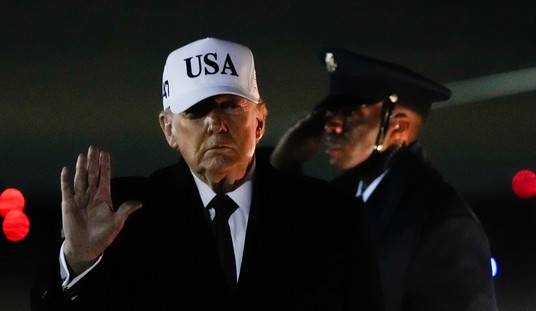On December 3, the lame-duck House passed the Healthy, Hunger-Free Kids Act, previously approved by the Senate. President Obama, doubtless preoccupied with such trivia as taxes, unemployment, Korea, and China, has yet to sign it into law. A mere two hundred and twenty pages long, it has lots of provisions for allocation of funds, demonstration projects, and the like. Many may be worthwhile.
However, included in the legislation is a provision authorizing the secretary of Agriculture to regulate school fundraising bake sales to ensure that they are infrequent and that the goodies sold are nutritionally acceptable. Far from innocuous, that is yet another distasteful and unnecessary intrusion of the federal government into our daily lives.
Under Section 208 of the Act, the secretary of Agriculture is to
establish science-based nutrition standards for foods sold in schools other than foods provided under this Act and the Richard B. Russell National School Lunch Act (42 U.S.C. 1751 et seq.)
With the two noted exceptions, the standards are to pertain to all foods sold on school campuses at any time during the school day. The standards are to be:
consistent with the most recent Dietary Guidelines for Americans published under section 301 of the National Nutrition Monitoring and Related Research Act of 1990 (7 U.S.C. 5341), including the food groups to encourage and nutrients of concern identified in the Dietary Guidelines.
In establishing the standards,
the Secretary is to consider authoritative scientific recommendations for nutrition standards; existing school nutrition standards, including voluntary standards for beverages and snack foods and State and local standards; the practical application of the nutrition standards.
He can but need not grant:
special exemptions for school-sponsored fundraisers (other than fundraising through vending machines, school stores, snack bars, a la carte sales, and any other exclusions determined by the Secretary), if the fundraisers are approved by the school and are infrequent within the school.
In fewer words, the secretary is required to regulate school bake sales unless he chooses to grant special exemptions. The steps a school district would need to take to secure a special exemption will likely be sufficiently onerous that very few will be sought. At least some schools sponsor bake sales because they need the money; the costs of securing special exemptions could easily outweigh any funds raised.
Obviously, the new legislation goes far beyond school bake sales and probably does some good things.
The Healthy, Hunger-Free Kids Act of 2010, though, is about more than just regulating fundraisers. For schools’ regular lunch programs, the policy provides funding incentives for schools to comply with updated nutritional standards. It is projected to bring about 115,000 new students onto school-meals programs. It establishes new food-safety guidelines and helps schools create gardens and use more local food in their cooking.
However, the problem is that by putting a few silly things into legislation promoted, and even intended, as doing some things widely accepted as good, our freedoms from federal intervention are nibbled away in ways less immediately obvious and therefore less contentiously than if they were done separately. That has unfortunately become a common tactic and it works.
The many new requirements are generally based on findings that kids eat too much bad stuff and not enough good stuff, that lots of kids are therefore obese and otherwise unhealthy, and that although parents wish that were not the case there is little they can do about it without the help of the federal government; therefore, the federal government should do something good.
Agriculture Secretary Tom Vilsack said the measure gives USDA the chance to make significant changes to school lunch programs for the first time in more than 30 years.
“Our national security, economic competitiveness and health and wellness of our children will improve as a result of the action Congress took today,” Vilsack said.
First Lady Michelle Obama was very pleased with passage of the Senate bill which was a major project of Senator Blanche Lincoln, Democrat of Arkansas and chairwoman of the Senate Agriculture Committee who lost her bid for re-election in November.
The new legislation probably won’t impact dramatically on the nation’s economy. Worse legislation has already done that. There is an expression in old English, “Mony a mickle maks a muckle.” Probably mistranslated but nonetheless sensible, the meaning generally ascribed to it is: “Lots of small things amount to a big thing.”
The Congress sometimes appears as though it is trying to illustrate this.









Join the conversation as a VIP Member